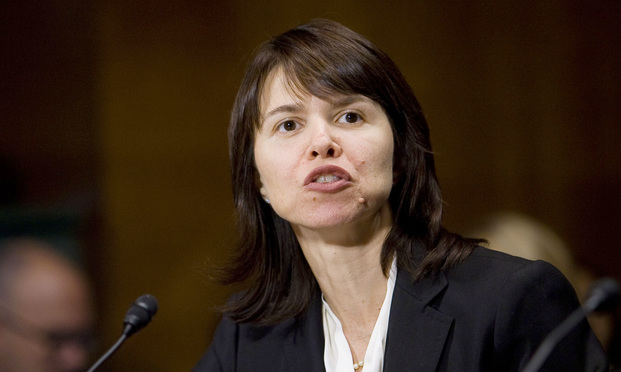
(Law360, 25.Sep.2020) — A New York federal judge on Friday grilled a lawyer representing the U.S. government on whether she should defer to Venezuelan’s denunciation of the some $1.68 billion in bonds, even as she acknowledged later that it would be a “very harsh result” to deny the bondholders what they’re owed.
U.S. District Judge Katherine Polk Failla opened the nearly five-hour long hearing in the case initiated last year by Venezuela’s state-owned oil company, Petróleos de Venezuela SA, by questioning a lawyer representing the U.S. government as to why the Trump administration has not taken a stronger position on whether it would be consistent with U.S. law and policy for her to defer to Venezuela’s National Assembly, which has concluded that the bonds in question were issued as part of an “illegal and unconstitutional” transaction orchestrated by Venezuelan President Nicolás Maduro.
In its statement of interest filed earlier this month, the government noted that it “stands firmly” behind the interim government of Venezuela led by opposition leader Juan Guaidó. But it declined to take a position on whether the act of state doctrine applies in the case, under which U.S. courts may not question the validity of actions undertaken by foreign governments within their own borders.
“I’m trying to understand the government’s end game,” Judge Failla told Assistant U.S. Attorney Anthony J. Sun. “Are you really just going to sit on the sidelines, sir?”
Sun responded that it’s “not possible” for the U.S. to respond definitively due to the complicated questions that arose out of the case, among them whether the bonds were issued legally under Venezuelan law.
Another question raised by the case is whether the bonds involve a national public interest since they are guaranteed by a 50.1% stake of Citgo Holding Inc., the parent company of Citgo Petroleum Corp., which the Maduro administration pledged as collateral for the bonds. Citgo Holding, which is wholly owned by PDVSA subsidiary PDV Holding Inc., is Citgo’s only shareholder.
Citgo, while widely perceived to be the “foreign crown jewel” of Venezuela’s oil industry, has become a target for Venezuela’s creditors, who are estimated to be owed some $150 billion. The Trump administration has taken steps to preserve Citgo for an eventual Guaidó government, imposing sanctions that prevent those creditors from seizing Citgo Holding shares without a license. No such licenses have been issued yet.
Judge Failla alluded to the U.S. government’s interest in preserving Citgo in her comments to Sun.
“Won’t you be sad if Citgo is lost to the Venezuelan people, and you, the U.S. government, had a chance to come in here and say you thought that was inconsistent with the policy of the U.S.?” she questioned, referring to the hypothetical situation of her ruling in favor of the bondholders.
Sun responded by pointing to the sanctions, noting that the process by which the U.S. Treasury’s Office of Foreign Assets Control could issue a license “takes into account the complicated array of legal and policy questions.”
Later in the hearing, Judge Failla appeared to express hesitation about ruling completely in favor of Venezuela in the case, saying “it seems like a very harsh result for these folks to just be out everything.”
Together with subsidiaries PDVSA Petróleo SA and PDV Holding, PDVSA filed the suit in October 2019 against MUFG Union Bank and GLAS Americas, which are the trustee and collateral agent for the 2020 bonds, respectively, a day after PDVSA defaulted on the bonds. The companies are asking the court to declare the 2020 notes transaction invalid and unenforceable.
The bondholders cannot execute on the Citgo shares until at least October due to sanctions imposed by the Trump administration that are aimed at crippling the Maduro administration.
Although it’s currently being targeted by a slew of Venezuela’s creditors, including the holders of the 2020 notes, Citgo has also become a flashpoint in the fight between Maduro and Guaidó for power in the country.
The fight for Citgo has become particularly intense after the U.S. Supreme Court in May declined to take up a petition filed by Venezuela and PDVSA to review a Third Circuit decision allowing Crystallex International Corp. to seize shares in PDV Holding to enforce a $1.2 billion arbitral award against Venezuela.
PDVSA is represented by Kurt W. Hansson, James R. Bliss and James B. Worthington of Paul Hastings LLP.
PDV Holding is represented by Jeffrey B. Korn, Michael Gottlieb, Nicholas Reddick and Cole S. Mathews of Willkie Farr & Gallagher LLP.
Venezuela is represented by Donald B. Verrilli Jr. of Munger Tolles & Olson LLP.
MUFG Union Bank and GLAS Americas are represented by Christopher J. Clark, Matthew S. Salerno and Sean H. McMahon of Latham & Watkins LLP and Walter Rieman, William A. Clareman, Jonathan Hurwitz, Shane D. Avidan and Roberto J. Gonzalez of Paul Weiss Rifkind Wharton & Garrison LLP.
The U.S. government is represented by Acting U.S. Attorney Audrey Strauss and Assistant U.S. Attorneys Samuel Dolinger and Anthony J. Sun.
The case is Petróleos de Venezuela SA et al. v. MUFG Union Bank NA et al., case number 1:19-cv-10023, in the U.S. District Court for the Southern District of New York.
__________
By Caroline Simson

